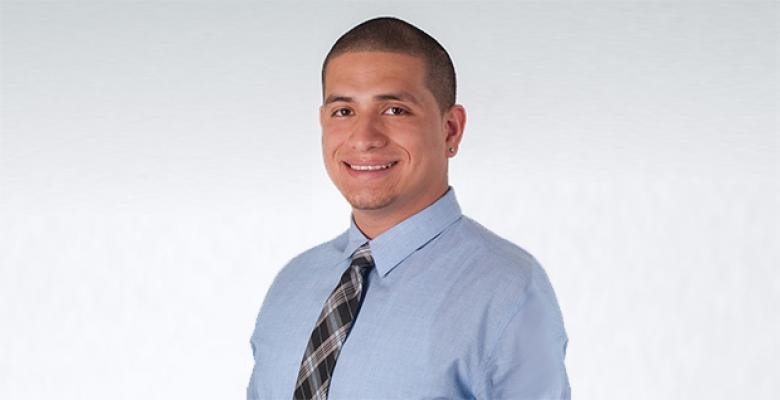“What I went through drives what I do today,” said Gamarra, who was a teaching assistant while at Mailman and also served as president of the school’s Black and Latinx Student Caucus.
He credits Robert Fullilove, professor of sociomedical sciences and associate dean for community and minority affairs at Mailman, for inspiring his interest in public health during a course at Woodbourne Correctional Facility in upstate New York. Fullilove (TC’84) encouraged him to apply to Columbia.
“At my lowest point, he took an interest in me and told me I could be a change agent in my community,” Gamarra said.
Gamarra took every public health course offered at the prison. “I found something I loved and I ran with it,” he said.
Related: Former Queens Gang Member and Prison Inmate Set to Graduate From Columbia University; ‘Education Rehabilitated Me’, New York Daily News, May 8, 2017
His master’s thesis grew out of an internship project with the New York City Health and Hospitals Corporation’s Division of Correctional Health Services. In that project he worked with the Department of Corrections and the Mayor’s Office for Criminal Justice to evaluate mental health competency training for corrections officers and health care staff in city jails. He drew on his experiences from prison as he assessed officers’ knowledge, attitudes and beliefs about mental health and the use of force.
After graduation, he hopes to join the New York City Department of Health to do research and shape policy that will help people with serious medical conditions in the criminal justice system. “It’s a vulnerable population within an already vulnerable population,” Gamarra said. “With my background, I’m now in a position where I can try to change things for people.”
“Richard was as motivated as any student I had in the Bard Prison Initiative, and he wrote like a graduate student; I still have his papers,” said Fullilove, one of several Columbia professors who teach in prisons and in a program for the formerly incarcerated that is part of the University’s Center for Justice.
In September 2016, Gamarra was awarded a fellowship by the Tow Foundation-Bard Prison Initiative to study how access to health care and the quality of health care during incarceration affect patients’ engagement with primary care and mental health care after they are released.
Now 28, Gamarra is the youngest of five children of immigrants from Colombia. His parents, a bacteriologist and a physician who became blood-bank technicians in New York, tried to instill in their children the value of education. Despite this, he was out on bail when he dropped out of high school three weeks before graduation. He eventually earned a general educational development (GED) diploma at the New York City Rikers Island jail complex and an associate’s degree at the Woodbourne Correctional Facility. After nearly seven years in prison on weapons and assault charges, he was released in November 2013 and earned a bachelor’s degree in public health and health education from the City University of New York in 2015, with a 3.95 GPA. He enrolled at Mailman that fall.
A visit from his daughter when she was 4 years old and he was in solitary confinement for the second time made him decide to change his life. “She needed me and wanted me to come home,” Gamarra said. “I wanted to be a dad, a role model for her.”
His daughter Izabella, now 10, and his parents plan to watch when he is awarded his Columbia degree.
Gamarra said he never expected to be at a place like Columbia. He had worried about whether his peers would accept him, but found that he was welcomed and got all the support he needed to succeed. He hopes to work for a couple of years and then return to Columbia for a doctorate, perhaps for a career in teaching. Fullilove says he’s ready to write letters of recommendation.
